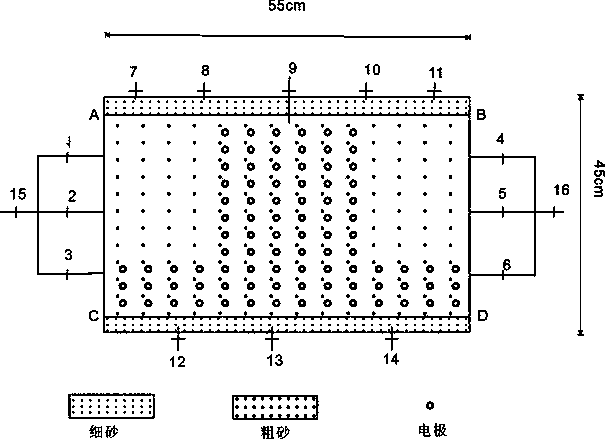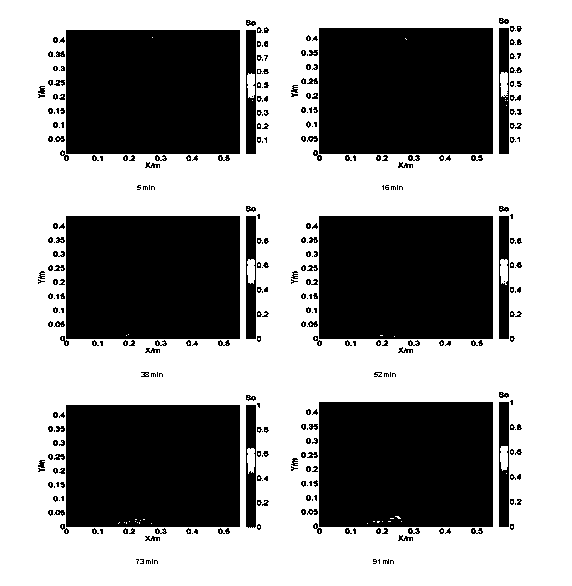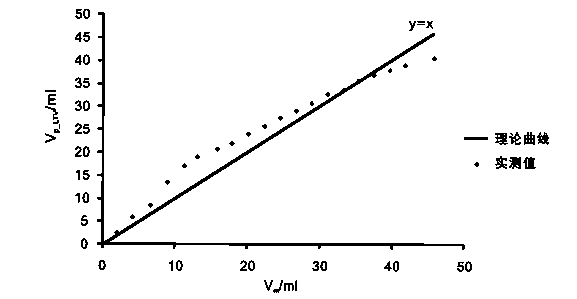Method for quantitatively monitoring DNAPL (Dense Nonaqueous Phase Liquid) migration process and saturation degree
A technique of saturation and migration, applied in the field of environmental pollution
- Summary
- Abstract
- Description
- Claims
- Application Information
AI Technical Summary
Problems solved by technology
Method used
Image
Examples
Embodiment 1
[0039] The effect of the present invention is verified below in conjunction with specific embodiments
[0040] In this experiment, the LCR measurement voltage is set to 1V, and the measurement frequency is 1KHZ. The stained TCE was pumped from the figure 1 Inject into the No. 9 hole in the middle at a rate of 0.5ml / min. The start time of injection was 16:50 and the end time was 18:25, which took 95 minutes in total, and a total of 42.5ml of TCE was injected. A total of 41.8ml of water was discharged during the experiment.
[0041] Processing the acquired data yields the following results:
[0042] (1) From figure 2 The distribution map of the saturation at different times in the medium can clearly reproduce the migration law of DNAPL. In the DNAPL infiltration area, the DNAPL saturation in the lower part is higher than that in the upper part, and the middle part is higher than the two sides, indicating that DNAPL mainly migrates longitudinally. The lateral migration is ...
PUM
 Login to View More
Login to View More Abstract
Description
Claims
Application Information
 Login to View More
Login to View More - R&D
- Intellectual Property
- Life Sciences
- Materials
- Tech Scout
- Unparalleled Data Quality
- Higher Quality Content
- 60% Fewer Hallucinations
Browse by: Latest US Patents, China's latest patents, Technical Efficacy Thesaurus, Application Domain, Technology Topic, Popular Technical Reports.
© 2025 PatSnap. All rights reserved.Legal|Privacy policy|Modern Slavery Act Transparency Statement|Sitemap|About US| Contact US: help@patsnap.com



